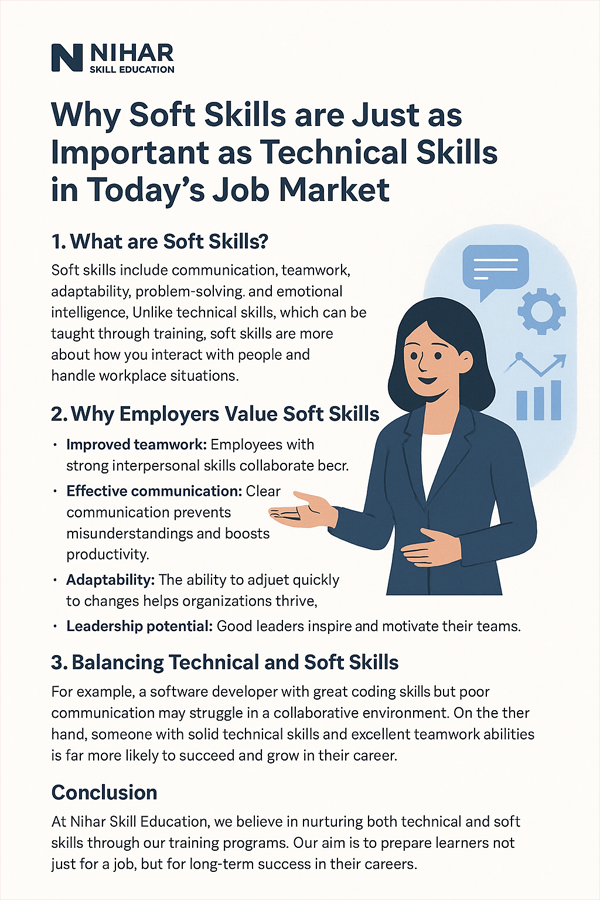Content:Why Soft Skills are Just as Important as Technical Skills in Today’s Job Market
In today’s fast-paced and competitive job market, having strong technical skills alone is no longer enough to stand out. Employers are increasingly looking for candidates who also possess soft skills — the personal attributes that enable you to work effectively with others.
1. What are Soft Skills?
Soft skills include communication, teamwork, adaptability, problem-solving, and emotional intelligence. Unlike technical skills, which can be taught through training, soft skills are more about how you interact with people and handle workplace situations.
2. Why Employers Value Soft Skills
- Improved teamwork: Employees with strong interpersonal skills collaborate better.
- Effective communication: Clear communication prevents misunderstandings and boosts productivity.
- Adaptability: The ability to adjust quickly to changes helps organizations thrive.
- Leadership potential: Good leaders inspire and motivate their teams.
3. Balancing Technical and Soft Skills
For example, a software developer with great coding skills but poor communication may struggle in a collaborative environment. On the other hand, someone with solid technical skills and excellent teamwork abilities is far more likely to succeed and grow in their career.
4. How to Improve Your Soft Skills
- Take part in group projects.
- Practice active listening.
- Join workshops or seminars on communication and leadership.
- Seek feedback and work on areas of improvement.
Conclusion
At Nihar Skill Education, we believe in nurturing both technical and soft skills through our training programs. Our aim is to prepare learners not just for a job, but for long-term success in their careers.





